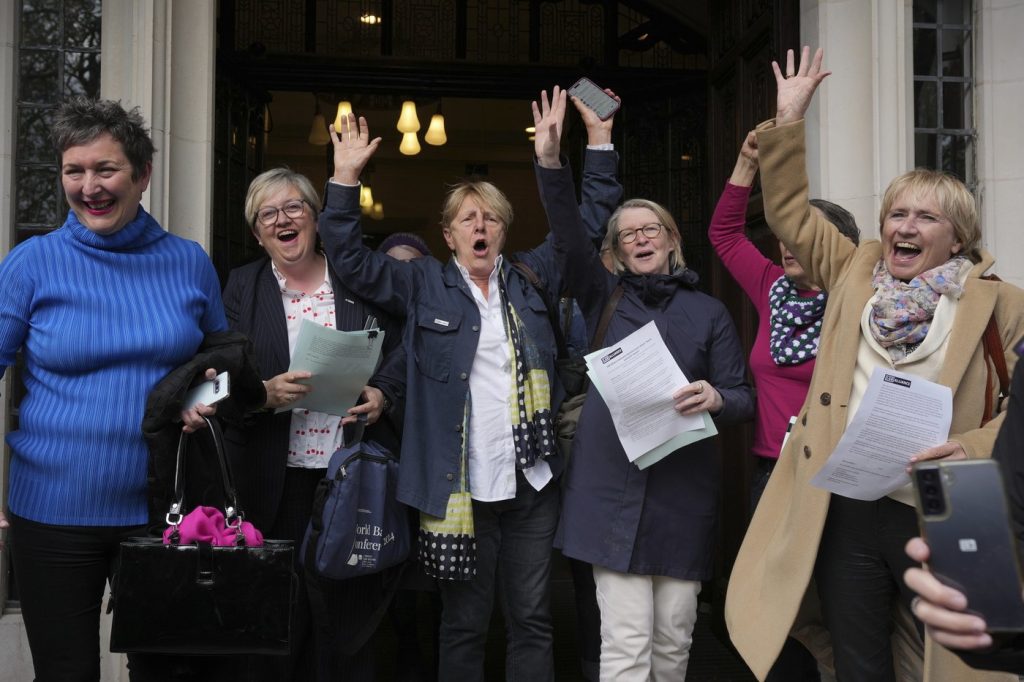LONDON (AP) – In a landmark decision, the U.K. Supreme Court ruled on Wednesday that the legal definition of a woman is restricted to those born biologically female, effectively excluding transgender women from this definition. This ruling carries significant implications for gender rights and protections in the United Kingdom.
The case emerged from a 2018 law enacted by the Scottish Parliament aimed at ensuring 50% female representation on the boards of Scottish public bodies. Under this law, the definition of "woman" included transgender women who have obtained a Gender Recognition Certificate for legal recognition of their gender. A feminist advocacy group, For Women Scotland, contested this definition, claiming that the Scottish government had improperly redefined the term "woman." Despite losing a prior ruling in a Scottish court in 2022, the group took its challenge to the Supreme Court, which held hearings in November 2022.
In the unanimous ruling, Justice Patrick Hodge stated that "the terms woman and sex in the Equality Act refer to a biological woman." The judges emphasized that the original intent of the legislation was to define "sex," "woman," and "man" based on biology. They argued that a more inclusive definition that encompasses transgender individuals would render the Equality Act "incoherent and unworkable," maintaining that sex-based rights should be reserved for biological women and girls, and men and boys.
The ruling has sparked polarized reactions across the U.K. Some feminists welcomed the judgment as a victory for the protection of women’s rights based on biological sex. For Women Scotland expressed "absolute jubilation" at the decision, while notable supporter J.K. Rowling remarked that the ruling safeguarded the rights of women and girls throughout the U.K. Conversely, LGBTQ+ rights groups expressed deep concern about potential impacts on transgender rights. Stonewall, a prominent LGBTQ+ charity, indicated that the ruling could have dire consequences for transgender individuals.
Vic Valentine, manager of the Scottish Trans charity, criticized the ruling, stating, "it seems to have totally missed what matters to trans people — that we are able to live our lives, and be recognized, in line with who we truly are." Amnesty International U.K. also expressed disappointment but clarified that the judgment does not reduce the protections against discrimination and harassment for transgender individuals under the Equality Act.
The practical implications of the ruling remain unclear. The Supreme Court's judgment raises concerns about spaces and services designated exclusively for women, such as domestic violence shelters, rape crisis centers, and female-only hospital wards. The ruling appears to facilitate the exclusion of transgender women from these spaces, though previous law already permitted such exclusions under specific circumstances. The decision might also restrict transgender female athletes from competing in women’s sports, raising questions about workplace policies regarding trans inclusion.
Legal experts like Hannah Ford from the law firm Stevens & Bolton indicate that the ruling will likely complicate efforts to create welcoming environments for transgender individuals in various settings. While some highlight the clarity and simplicity achieved by the ruling, others warn that it could create significant challenges for achieving equitable treatment of transgender individuals in society.










